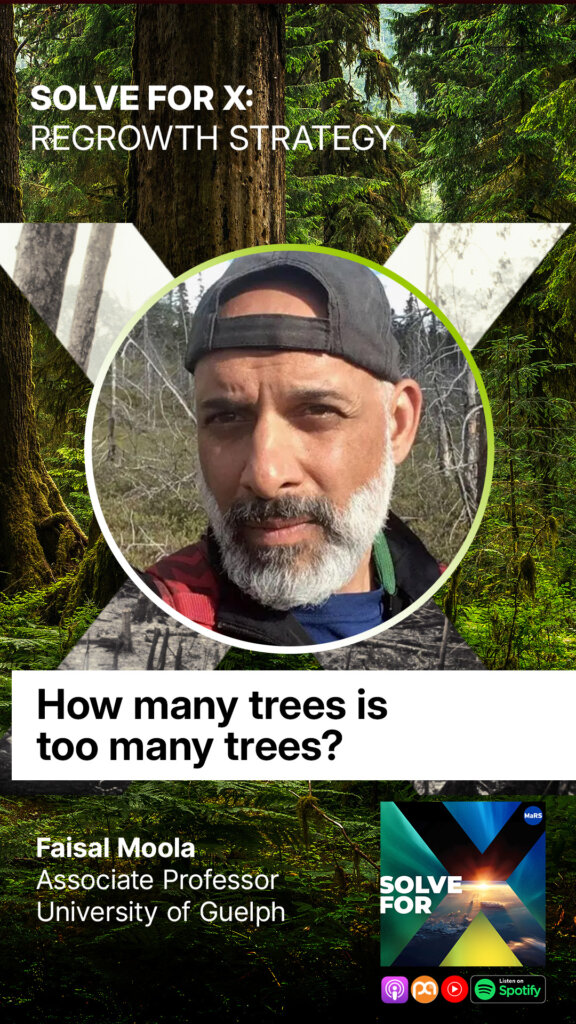Home » Solve for X – S3E8 | What’s the Right Number of Trees
Solve for X – S3E8 | What’s the Right Number of Trees

In the podcast episode "Solve for X," University of Guelph professor Faisal Moola discusses the complexities surrounding reforestation and its impact on the environment. While trees undoubtedly provide numerous benefits, Moola argues that an uncritical focus on planting trees can lead to unintended consequences for ecosystems.
Moola emphasizes that while trees play a crucial role in combating climate change by absorbing carbon dioxide, their planting must align with an understanding of local ecosystems. Reforestation efforts should not merely focus on increasing tree numbers but rather on restoring ecological balance. He points out that different environments support different plant species, and simply adding trees may disrupt existing habitats or contribute to the decline of native flora and fauna.
The professor raises concerns about monoculture plantations, where a single species of tree is planted en masse. These homogenous forests can lack biodiversity, making them more susceptible to diseases and pests. Moola stresses the importance of fostering a variety of plant life, which enhances resilience against environmental stressors and allows ecosystems to thrive.
Furthermore, he discusses the socio-economic implications of reforestation. While tree planting initiatives can create jobs and boost local economies, they can also lead to conflicts over land use. Moola argues that involving local communities in reforestation projects is essential, as they can provide valuable insights into the land and its needs. Communities should have a say in which types of trees to plant, ensuring that efforts align with both environmental and local societal goals.
Moola also scrutinizes the notion that reforestation alone can effectively mitigate climate change. He advocates for a more nuanced approach that includes reducing fossil fuel consumption and protecting existing forests from deforestation. This combination of strategies is vital for achieving sustainable environmental goals.
In summary, while reforestation has significant potential for addressing environmental challenges, Moola warns against viewing it as a one-size-fits-all solution. He calls for a broader understanding of ecological dynamics and emphasizes the need for diversity in plant life to support healthy ecosystems. By taking a holistic approach, we can ensure that reforestation efforts contribute to the sustainable health of our natural landscapes rather than jeopardizing them.
MaRS Discovery District
https://www.marsdd.com/
MaRS is the world's largest urban innovation hub in Toronto that supports startups in the health, cleantech, fintech, and enterprise sectors. When MaRS opened in 2005 this concept of urban innovation was an untested theory. Today, it’s reshaping cities around the world. MaRS has been at the forefront of a wave of change that extends from Melbourne to Amsterdam and runs through San Francisco, London, Medellín, Los Angeles, Paris and New York. These global cities are now striving to create what we have in Toronto: a dense innovation district that co-locates universities, startups, corporates and investors. In this increasingly competitive landscape, scale matters more than ever – the best talent is attracted to the brightest innovation hotspots.


